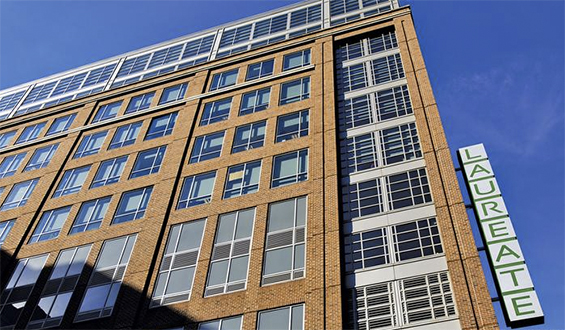
One for-profit college has found a way around United States regulations: it now operates primarily in overseas markets.
Based in Baltimore, Maryland, the world’s largest for-profit higher-education company with around 1 million students enrolled worldwide, Laureate Education operates in a sector that has been highly scrutinized by the US government, as another for-profit education company, Corinthian Colleges, had declared bankruptcy earlier in the year.
However, Laureate has found a way around the scrutiny. Namely, it receives 84% of its revenue from other countries. Most of that comes from Latin America, where the infrastructures of established universities do not exist the way they do in the United States. At the same time, the countries have a high need for educated workers and skills training.
“The world embraces the power and importance of education and is seeking new ideas and technologies to deliver better education to more people at an affordable cost,” Laureate founder and CEO Douglas L. Becker wrote in a letter in Laureate’s IPO prospectus in the fall. “We believe we are uniquely positioned to meet this need through our unparalleled scale and resources, and our growing capacity to provide our intellectual property and services to other universities and governments.”
According to the company, developing countries are seeing their middle classes grow at a rapid rate. While these countries are also increasing service and technical industries on a global level, they are seeing more benefits of higher education for students and economic growth.
The United Nations Educational, Scientific and Cultural Organization reports that the number of students in higher education has almost doubled from 99.7 million in 2000 to 198.6 million in 2013, with around 90% of those students located in countries other than the United States.
The company mentioned that there is a high demand for low-cost institutes of higher education in other countries, where currently students are able to attend Catholic colleges or state-run universities. While these options come at a low-cost, sometimes even being free, there are limited spots available, writes Gary Gately for CNBC.
It remains unclear if the company will be successful in other countries, where all but 6 of its 88 schools operate. Laureate has already been subjected to heavy criticism in Chile and Brazil and lost accreditation at one of its Chilean locations last year.
Critics of the company’s Walden University in Minnesota argued that professors at the school were not readily available and that delays persisted, causing an increase in the amount of time and money it took to complete degree programs. As a result, three students have filed a lawsuit against the school and are hoping to make it a class-action suit. According to the students, the school is guilty of breach of contract, unjust enrichment, violations of state consumer protection and unfair competition laws.
U.S. District Court Judge Marvin J. Garvis in Maryland has dismissed four counts of breach of state consumer protection laws. The plaintiffs are looking for tuition refunds, loan debt payments, and litigation costs.
But for now, Laureate is continuing with its international growth focus – and whether other countries’ regulations and intervention make that model difficult remains to be seen.




